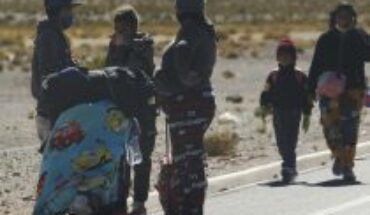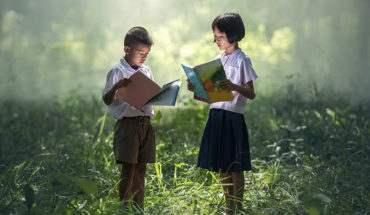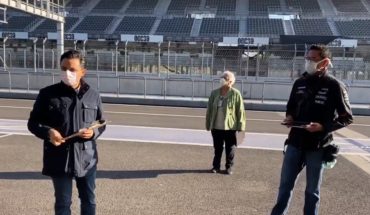These days in Chile we live a moment of sincerity. Although the electoral participation was not higher than on previous occasions, the first voices point to the geographical segmentation of the vote: north for the candidate Parisi, the metropolitan center for Boric and the south for Kast. The rural vote for Kast and the urban concentration of the Frente Amplista voter have also been emphasized.
In this sense, it is interesting to learn from previous experiences for a better understanding of the link between rural citizenship and the expansion of right-wing populism. In 2016, Katherine Cramer, an academic at the University of Wisconsin, published a book called The Politics of Resentment. In it he proposes an explanation for the triumph of Donald Trump in the rural areas of the United States, a counterintuitive reality, since the policies promoted by the then candidate were harmful to the rural economy.
In his fieldwork, Cramer encountered communities where the sense of identity and differentiation from the urban was deep and rooted in the way politics was understood and practiced. The years of abandonment of democratic governments – under the neoliberal logic that the market works – were harboring a deep sense of resentment towards the central political elite and, therefore, a candidate who proposed “America first” and the least interference of the State in their local affairs, was a logical option in the face of the threat of migration and the accumulation of wealth, common point on the North American coasts.
In this sense, we can observe in the Chilean rural reality the following:
The 30 years of the Concertación are seen as years of improvement and expansion, but benefiting industries. The roads built are mostly roads and paths for fruit and export products to go to ports (as an example, in Aysén roads concentrate 53% of the public investment considered in the BIP between 1994-2020, while in O’Higgins it corresponds to 30%). In the O’Higgins Region, the second largest area of public investment was reservoirs, also for the benefit of agribusiness. Meanwhile, the citizen infrastructure was left to the own effort (what else are the rural drinking water committees?) and subsidies that, in 2017, reached 40.3% of the regional sample. Thus, the inhabitants of this region reached an average corrected income of 34.4582.
Needless to say, it is an insufficient amount to afford daily and vital needs.
The individualistic logic of neoliberalism is deeply rooted in our society. Most people solve their problems in their family environment and do not consider the State as a solving entity of their daily lives. They observe that municipal and parliamentary networks operate on the basis of cronyism, cronyism and clientelism, and those who are not from the group in power cannot resort to these instances. This reaffirms the logic that it is through individual effort that things are achieved, and those who are left behind is because they did not sacrifice enough. Therefore, the further away from the state, the better.
The decisional spaces installed during the last 30 years are formal spaces and not incidents. The main projects of intervention and transformation of rural territories are decided at the central level, without the participation of the communities, and those who do so, through citizen movements of territorial defense, are persecuted and branded as extremists. The lesson learned, then, is on the one hand to distrust these spaces and bet on the individual solution and, on the other, given the formality of the electoral act, to vote for whoever the boss indicates.
The insecurity associated with the urban (drug trafficking, crime, marginalization) is already installed in rural areas, and affects the sense of identity of those who inhabit it, since the rural has historically been the place of tranquility and trust in the other, and the fear or terror of the different or “outside”.
It is important to understand that rural areas are conservative in the most literal sense of the word, and the globalizing irruption of agro-export brought with it discomfort and nostalgia for a romanticized past.
Most rural inhabitants recognize personal experiences that account for the differentiation between them and others by access to resources (water, soil), rights (to timely and quality health, to education, etc.), which should be for everyone. But there is also a conviction that we live in a society where the fact of living in zonThe rural is already an injustice, which is faced with resignation, with the desire for the children to leave and with pain.
The accumulation of these experiences leads to a negative evaluation of state intervention in rural territories, to a deafness and blindness of urban political elites, to the specificity of rural reality, which the new political actors, emerged in the heat of the student movement of 2011, do not understand because they have not lived it. Most rural dwellers have no higher education, and see education as a privilege. As Crammer says, resentment abounds, but there are still opportunities for dialogue. Recall that, in the plebiscite of the new Constitution, the Approve won with about 80% support.
In this sense, we have detected in the rural inhabitants the hope in the constituent process, but they are afraid that the promised changes will not materialize. We are at a time when we must overcome the old politics – that of clientelism, centralism and neoliberal promises – to confront rural resentment, establishing new practices of citizenship, where incident participation, autonomous and without fear, are the basis of the social pact.
It is important to understand that in the last 30 years the focus of territorial political action has shifted from national issues (agrarian reform) to local ones (conflicts over access to water, pollution, overexploitation) without these being reflected in the political agenda or giving space to those who live these problems in their resolution.
It is interesting to learn from the constituents, that their territorial weeks have been used to go to give an account and listen to the demands and opinions of rural citizens. In squares, with 5-10 people, but that bring power closer and visible to those who distrust the elite.
When talking to the rural inhabitants, we see that they ask only to be treated and considered equals, that their expectation is to continue living in their territory and that their children have access to that space.
The rural world is waiting for us to incorporate it. It is time to do so, not from fear and order, but from the dignity between equals.
References
Crammer, Katherine. 2016. The politics of resentment, rural consciousness in Wisconsin and the rise of Scott Walker. University of Chicago Press.
The content expressed in this opinion column is the sole responsibility of its author, and does not necessarily reflect the editorial line or position of El Mostrador.





